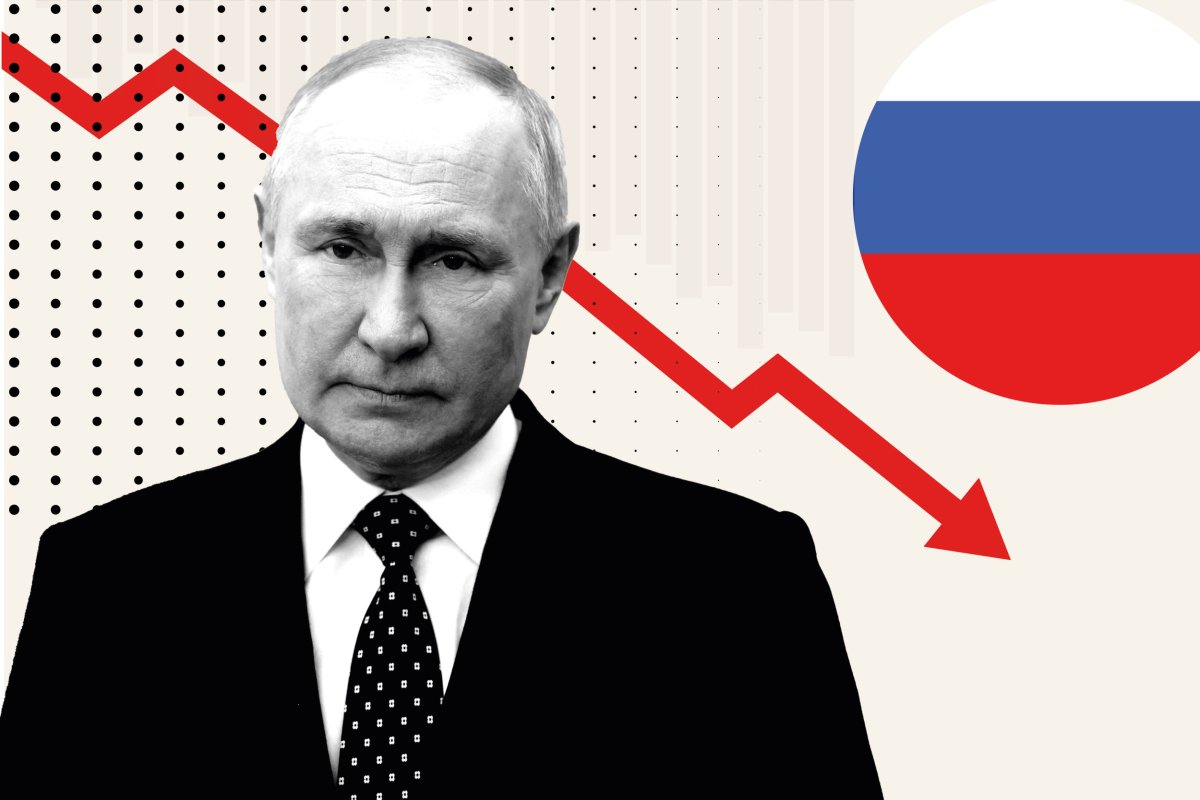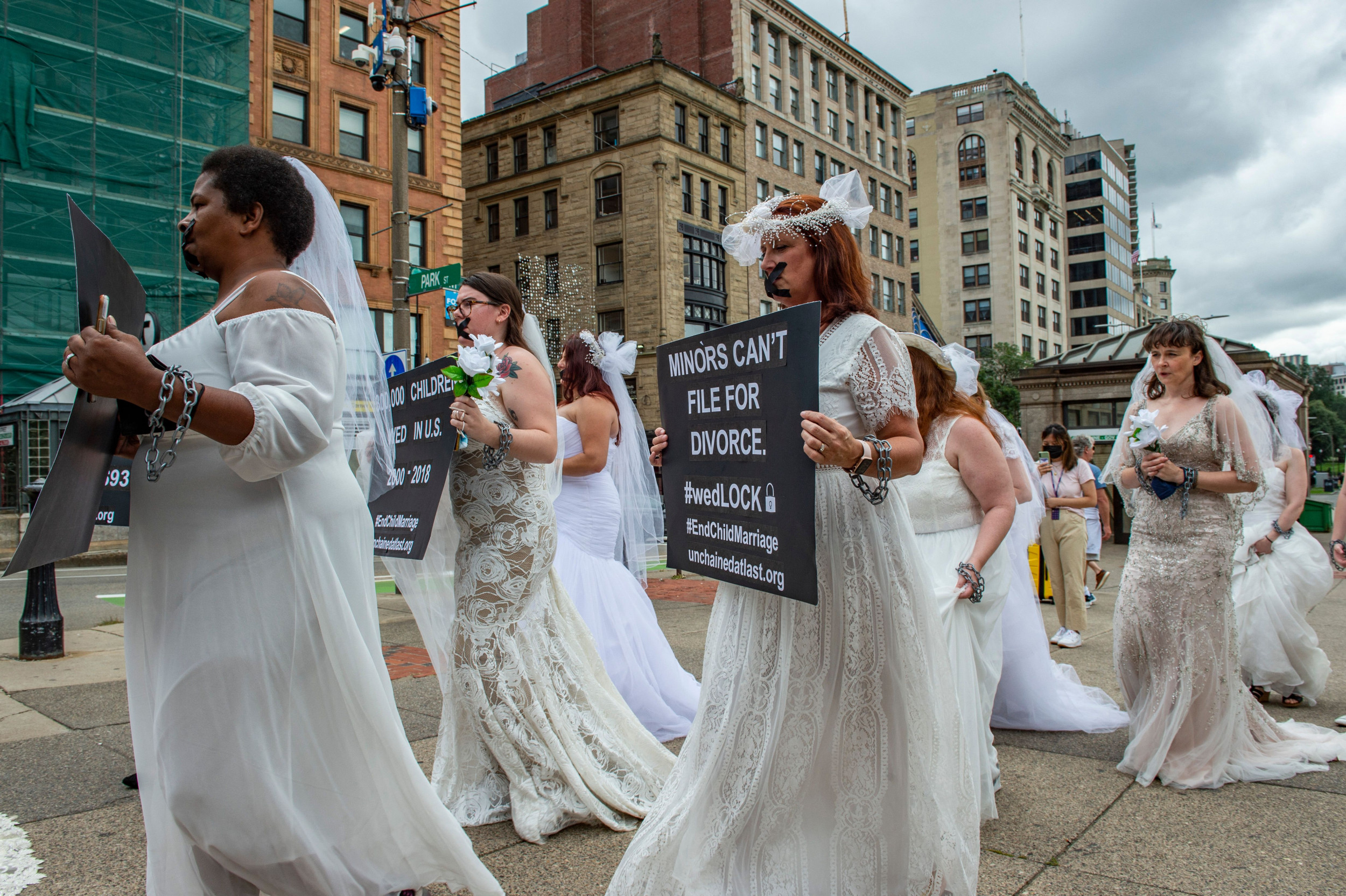- Putin has become a global outlaw amid his ongoing invasion of Ukraine, as he stands accused by the International Criminal Court (ICC) of the illegal deportation of children from Ukraine to Russia.
- The ICC's 123 member states are legally obliged to arrest Putin should he enter their territory.
- He could also face arrest as part of a coup orchestrated by Russian elites, or even a citizen's arrest by a member of the public.
- So, what could an arrest of the Russian leader look like—and what might the Kremlin's response be?
A week has passed since Russian President Vladimir Putin was made a global outlaw.
The International Criminal Court (ICC) issued an arrest warrant for him on March 17, accusing him of committing war crimes in his full-scale invasion of Ukraine. Since then, some of the court's member states have weighed in on whether they would detain and hand Putin over to the court in The Hague.
It is unclear whether Putin will ever be held fully accountable for overseeing the illegal deportation of Ukrainian children. However, should he enter the territory of the ICC's member states, they are legally obliged to carry out the arrest warrants on Putin and Russia's presidential commissioner for children's rights, Maria Lvova-Belova.
However, that may not be the only risk for Putin following the arrest warrant, as he also faces the prospect of embarrassment, humiliation or even death at the hands of enemies both within and abroad.

All ICC states—including every member of the European Union, most African states, all Latin and South American states except Cuba and Nicaragua, and even Tajikistan—are legally required to arrest Putin if he ever steps foot on their territory, the Center for European Policy Analysis (CEPA) has noted.
The ICC lacks its own police force to enforce its arrest warrants, and is dependent on its 123 member states to assist by placing individuals under arrest by national law enforcement—something that hasn't always played out in the past. Former Sudanese leader Omar al-Bashir has two arrest warrants from the ICC dating back to 2009 and 2010. Despite visiting ICC member states since then, he remains at large.
While several NATO member states, including Germany and the U.S., have doubled down on commitments to abide by the ICC's arrest warrant for Putin, Hungary, which is also a member of the 30-member military alliance, has announced that it would not arrest the Russian president if he entered the country.
Gergely Gulyas, chief of staff to Hungarian Prime Minister Viktor Orban, said on March 23 that although his country is a signatory to the Rome Statute, the treaty that created the ICC, and ratified it in 2001, there is no basis in Hungarian law for arresting Putin.
That announcement came after Russia's former President Dmitry Medvedev warned that any attempt to arrest Putin on the ICC's warrant would amount to a declaration of war against Russia.
There is also growing discussion about whether Putin could be arrested this August during an expected trip for a summit of BRICS (Brazil, Russia, India, China and South Africa) nations this August in South Africa, which is also obliged to carry out the warrant.
Putin's Enemies Within?
Vlad Mykhnenko, an expert in the post-communist transformation of Eastern Europe and the former Soviet Union at the University of Oxford, told Newsweek he believes Putin could be arrested and sent to court at The Hague should he be removed from power, or if Russia's elites set him up for an arrest to oust him from power.
"Because the Kremlin is, number one, paranoid about Putin's safety and number two, believes the U.S. runs the world, Putin will not step foot on the territory of an ICC member state to avoid any embarrassment," said Mykhnenko, adding that Putin likely won't risk going to Dushanbe, in Tajikistan, or South Africa.
And if Putin does risk visiting ICC member states and "gets into trouble," that could be the result of the siloviki (an elite group of Russian businessmen and leaders) setting him up for an arrest "to get rid of him," said Mykhnenko.
"A substitute could be easily conjured up, who could even promise 'to avenge' the loss of the dear leader, but just for a show," he said.
Boris Bondarev, a former Russian diplomat who resigned publicly over the invasion of Ukraine last year, also told Newsweek last month that Putin can be replaced, and that he may eventually be forced to step down should he lose his war against Ukraine.
"Putin can be replaced. He's not a superhero. He doesn't have any superpowers. He's just an ordinary dictator," said Bondarev.
Mykhnenko drew comparisons to Slobodan Milosevic, who was indicted in 1999 by the precursor of the ICC, the International Criminal Tribunal for the Former Yugoslavia.
"After he lost power at home, the new Serbian leader—to re-establish relationship with the West— handed over Milosevic to the tribunal in The Hague," said Mykhnenko.
"I think that post-Putin leaders could pull the same trick to re-establish the relationship with the West."
However, in this scenario, Putin might not even make it to The Hague.
"Given Putin's extensive connections across Europe and what he could potentially tell the judges about corruption and dodgy dealings between Moscow and major Western capitals, there will be a lot of incentive to silence him before The Hague," Mykhnenko said.
As well as the risk of Putin being handed over by the Russian elite, he could face trouble simply by visiting other countries, even if they are friendly to the Russian regime and don't seek his arrest like in the case of Milosevic.
Former British Prime Minister Tony Blair has faced at least five incidents in which a member of the public attempted to place him under "citizen's arrest" for alleged war crimes over the 2003 invasion of Iraq.
The most recent documented case was in 2014, when Twiggy Garcia, a barman in Shoreditch, east London, placed his hand on Blair's shoulder and told him he was making a citizen's arrest because he had launched an "unprovoked war against Iraq."
Garcia asked him to accompany him to a police station. Blair declined and attempted to argue his case, before Garcia left. Blair, who maintains that the invasion of Iraq was justified, has never been accused of any crime by the ICC.
Similarly, in 2001 the activist Peter Tatchell attempted a citizen's arrest of Zimbabwean President Robert Mugabe in Brussels, Belgium, for alleged human rights abuses. He was assaulted and knocked unconscious by Mugabe's bodyguards. Mugabe was never accused of any crime by the ICC and died in 2019.
Mykhnenko said that the ICC's arrest warrant has made Putin "extremely vulnerable" and "humiliated" in Russia itself.
"That is why the Kremlin TV has gone very quiet," he said. "They don't want ordinary Russians to hear Putin, arrest, warrant, in one sentence, for that destroys his 'bad boy' charisma, [and] makes him look like a simple criminal, a Third World despot."
What Could the Russian Response Be?
Threats by Medvedev, who serves as deputy chairman of Russia's security council and was also prime minister for eight years, over a possible Putin arrest have caused alarm. He said that if the German authorities attempted to arrest the Russian president on the ICC's warrant, it would be a declaration of war.
Germany is one of the 30 members of NATO, along with the U.S., so Medvedev's warning suggests that any arrest would put the military alliance at war with Russia, sparking World War III.
When contacted by Newsweek, the ICC said: "The court does not comment on alleged political statements." Newsweek has also contacted Russia's foreign ministry by email for comment.
Rabea Bönnighausen, spokeswoman for Germany's Federal Ministry of Justice, told Newsweek that "Germany, like all ICC States Parties, is obliged to cooperate with the ICC (and therefore to execute an arrest warrant) under Article 86 of the Rome Statute and Section 2 (1) Gesetz über die Zusammenarbeit mit dem Internationalen Strafgerichtshof (Law on Cooperation with the International Criminal Court)."
Olga Lautman, non-resident senior fellow at CEPA and a senior investigative researcher at the Institute for European Integrity, noted that Medvedev and other Kremlin officials and propagandists have made several threats against ICC member states should they comply with the arrest warrant for Putin, but these would likely prove baseless.
"In the hypothetical case that Putin was to be arrested by an ICC member I don't believe Russia would do anything," she told Newsweek, adding that this may depend on the member state and what leverage Russia may have over it.
"When it comes to Germany or any NATO state, Russia would take no action because they fully understand they are not prepared to have a direct confrontation with NATO."
Lautman said Russia may pressure signatories in Africa and other non-NATO states to force them not to comply.
She added: "Personally, Putin is a coward and I don't believe he would venture outside of Russia and risk arrest."
Lautman's remarks were echoed by Oleksandr Moskalenko, Democracy Fellow at CEPA, who told Newsweek that the "hysteria" of Medvedev "does not have any legal grounds."
"It is like threatening a police officer who is ordered by the court to come and bring a person for the court hearing. There is nothing personal in the action of a state in this case—it got the order, it is obliged to cooperate, and it cooperates,' said Moskalenko.
He explained that if Russia does not agree with the warrant, it must refer to the ICC, although there is no legal mechanism to cancel this order.
"Such a mechanism exists if an arrest warrant was issued by another state, then the case can be initiated in the UN International Court of Justice (Congo v Belgium case). But ICJ hears the cases only if the parties are states, which ICC is definitely not," he said.
Moskalenko said Putin's arrest will "most probably not" cause a wider war, "although the question is not legal but political."
"Many wars were started without any reason at all. My thinking is that if the President of Russia is under arrest in the Netherlands, he will not be able physically to participate in routine procedures related to declaring war. Moreover, any action against a NATO country means a common reply from NATO."
He added: "As we all have seen, Russia is not capable of dealing even with Ukraine, let alone NATO."
Uncommon Knowledge
Newsweek is committed to challenging conventional wisdom and finding connections in the search for common ground.
Newsweek is committed to challenging conventional wisdom and finding connections in the search for common ground.
About the writer
Isabel van Brugen is a Newsweek Reporter based in Kuala Lumpur. Her focus is reporting on the Russia-Ukraine war. Isabel ... Read more
To read how Newsweek uses AI as a newsroom tool, Click here.








